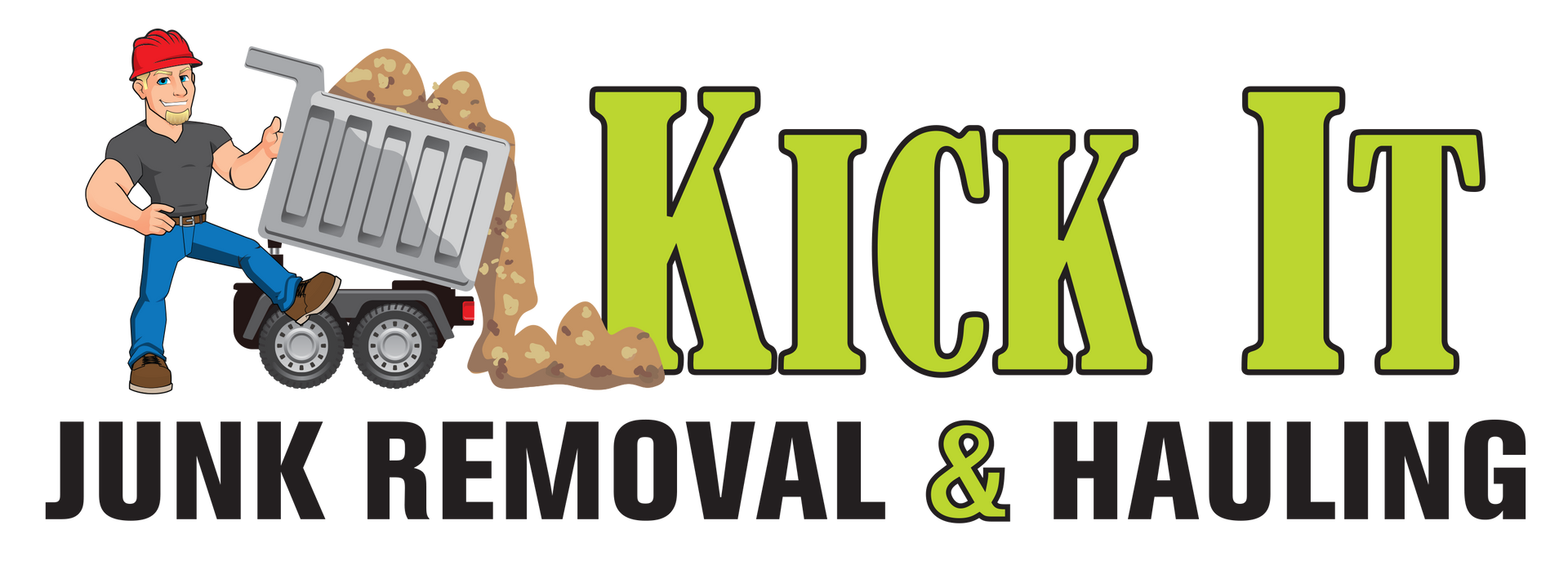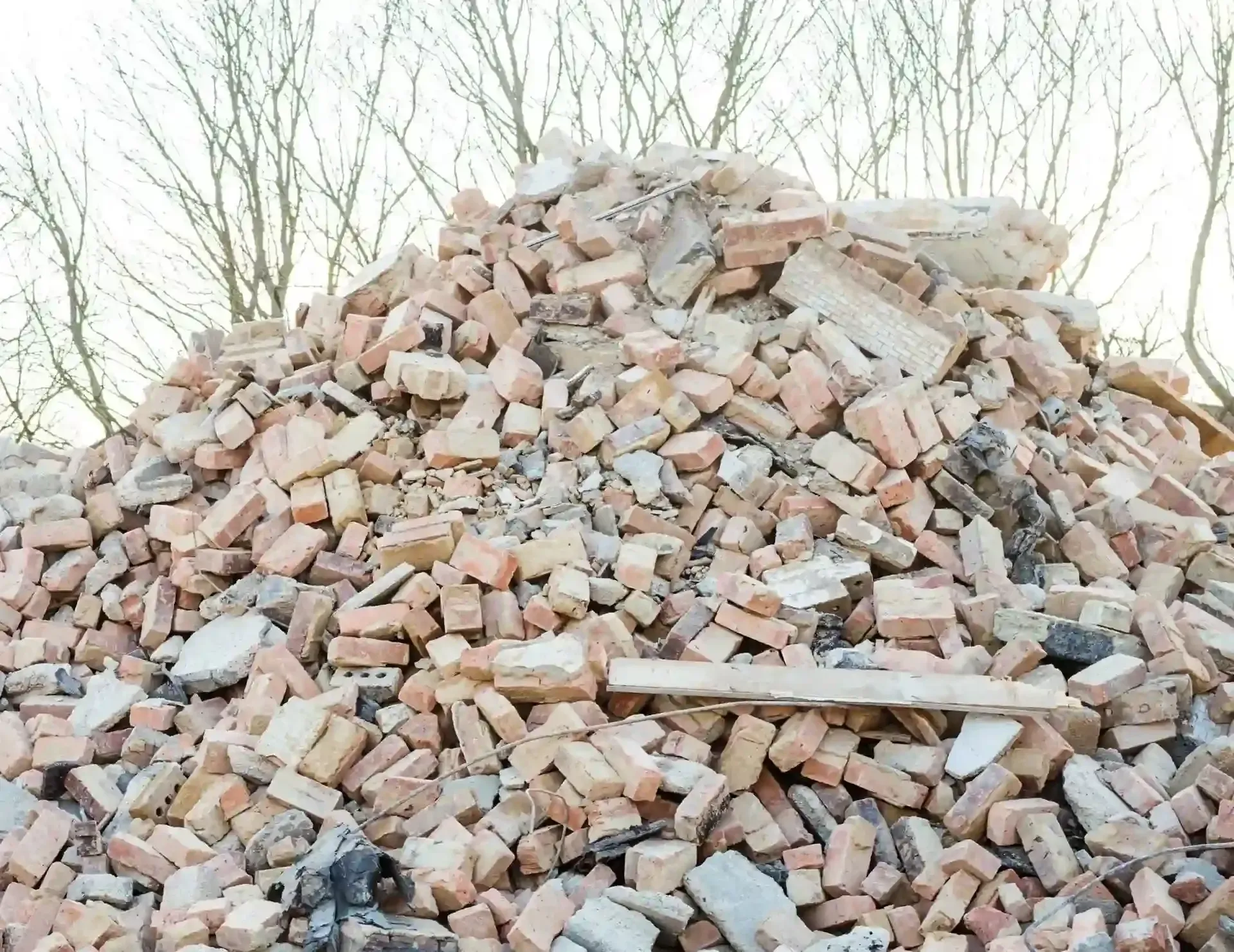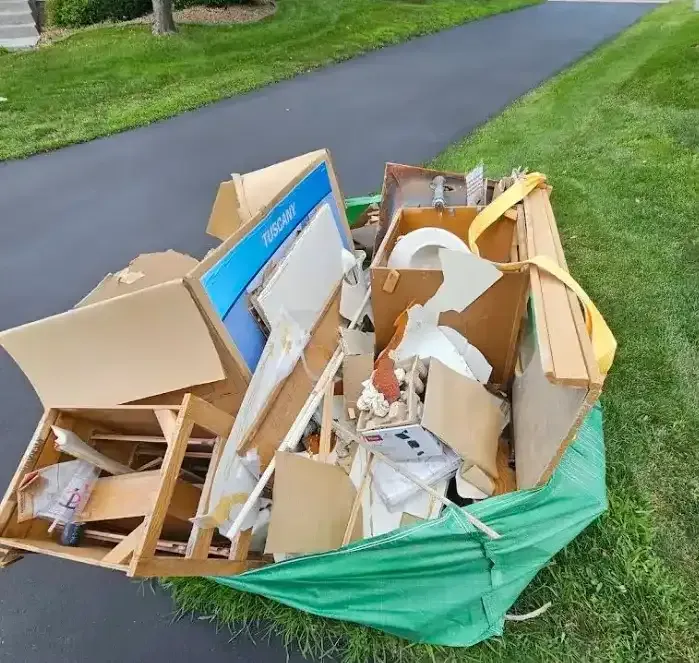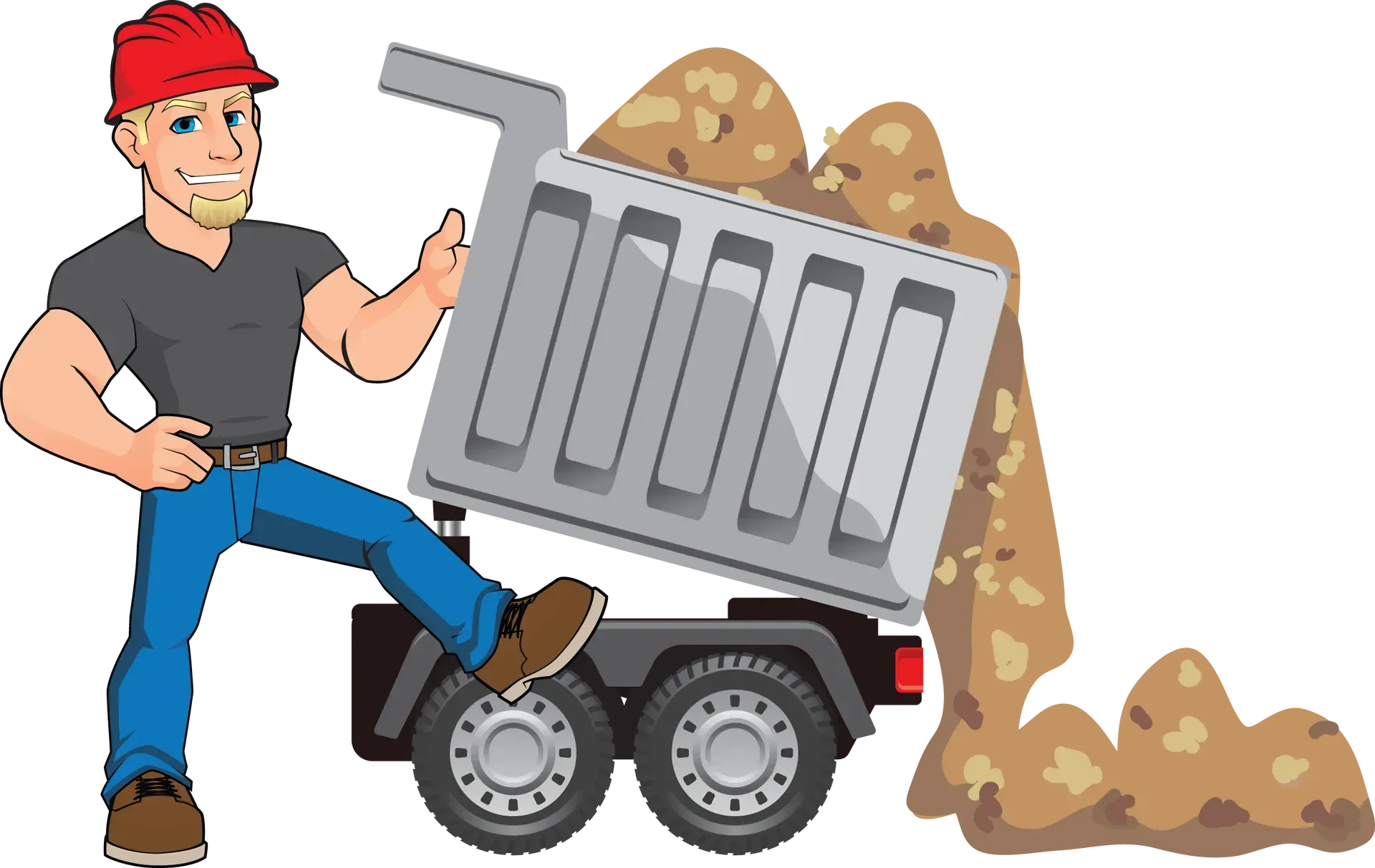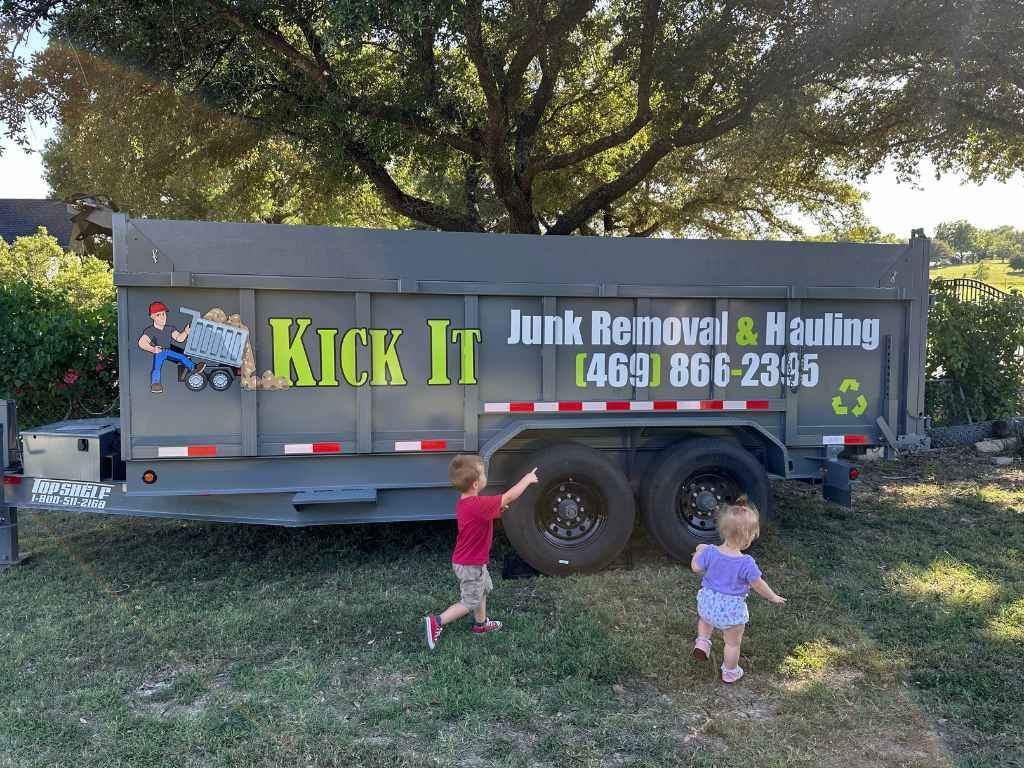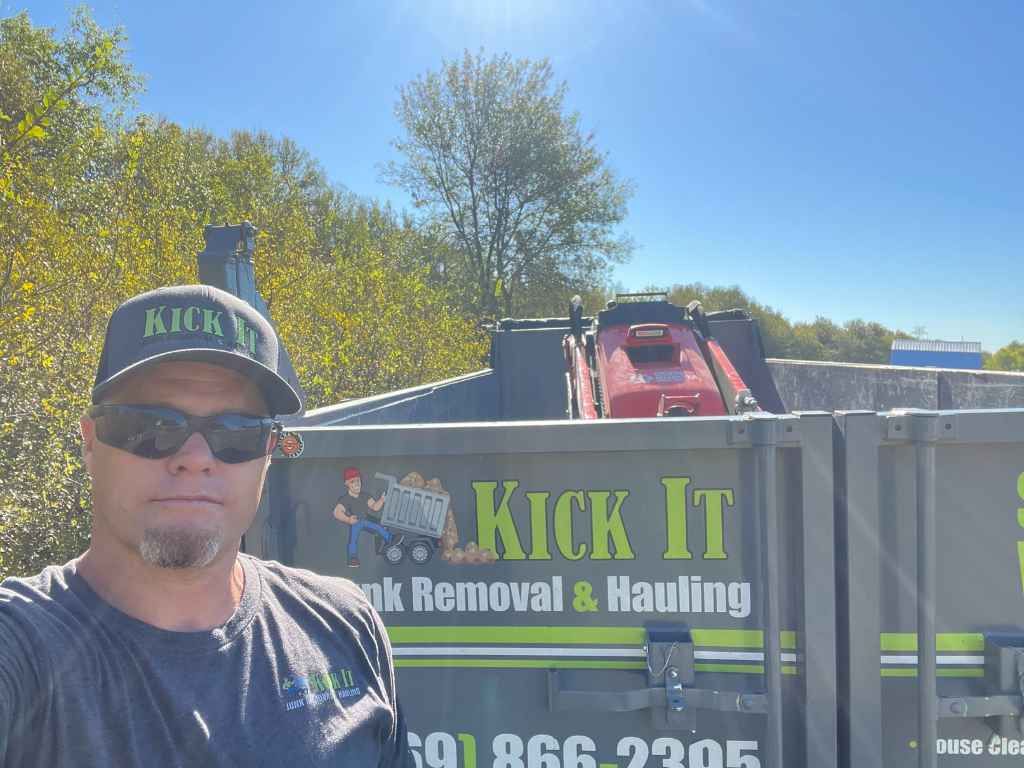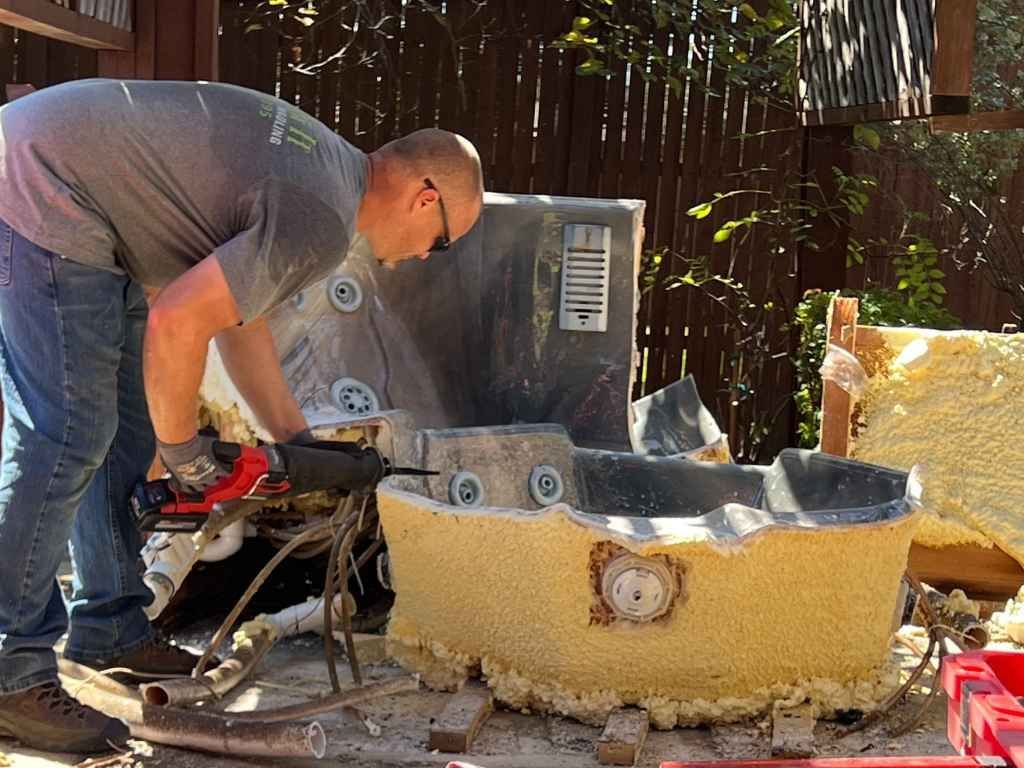Eco-Friendly Yard Waste Removal: What You Should Know
Yard waste removal is an essential task for homeowners, particularly those who take pride in their gardens and outdoor spaces. Whether it's fallen leaves during autumn, twigs and branches from a recent storm, or the overgrown garden you’ve been meaning to tackle, the accumulation of yard waste is inevitable. However, managing this waste doesn't have to come at the expense of the environment. Eco-friendly yard waste removal presents a sustainable and responsible way to dispose of or repurpose organic debris while reducing environmental impact.
Understanding Eco-Friendly Yard Waste Removal
Eco-friendly yard waste removal refers to the practice of managing and disposing of organic waste from your yard in a manner that reduces harm to the environment. Traditional methods often involve sending yard waste to a landfill, where it can decompose in a manner that generates methane—a potent greenhouse gas that contributes significantly to climate change. Furthermore, sending organic waste to landfills wastes valuable resources, such as nutrients and materials that can be reused in various sustainable practices.
In contrast, eco-friendly methods focus on reducing landfill waste by repurposing, composting, or recycling organic materials. This approach helps to return organic matter to the earth in a way that nourishes soil, promotes plant growth, and minimizes pollution. By adopting eco-friendly yard waste removal practices, homeowners can contribute to a healthier planet while keeping their yards neat and well-maintained.
Types of Yard Waste
1. Leaves
One of the most common types of yard waste, leaves tend to accumulate rapidly in the fall and throughout the year. While leaves are biodegradable, improper disposal can contribute to landfill waste. They are rich in nutrients and can be repurposed into compost or mulch.
2. Grass Clippings
Grass clippings are generated during routine lawn mowing. They often accumulate quickly and can be a significant source of yard waste. Although grass clippings are biodegradable, they can create problems when improperly disposed of, such as clogging drains or adding to landfill waste. The eco-friendly alternative is to leave the clippings on the lawn, where they can decompose and return nutrients to the soil.
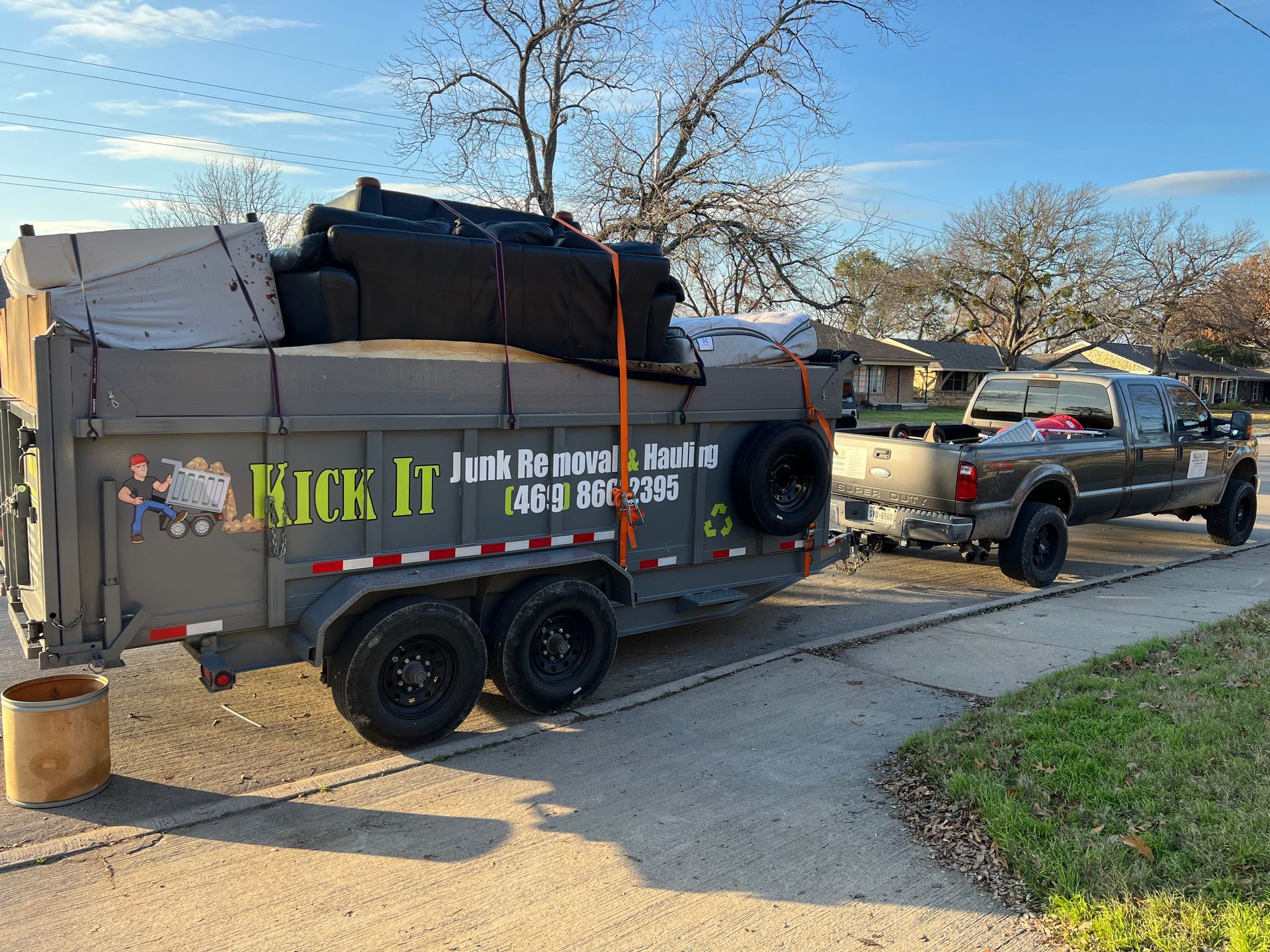
3. Branches and Twigs
Branches and twigs, whether resulting from tree pruning or storm damage, are another major type of yard waste. These materials are often too large for simple disposal and may need to be broken down into smaller pieces for recycling. They can be composted, chipped into mulch, or even repurposed as firewood.
4. Weeds and Plants
Weeds, dead plants, and spent flowers are a common sight in many gardens. While they may seem like waste, these materials can be composted or recycled to improve the soil. However, care must be taken to ensure that invasive species or plants with seeds are properly managed to prevent their spread.
5. Sod
When replanting or remodeling a lawn, old sod is often removed and discarded. However, sod is not necessarily waste—it can be reused to create a new lawn or broken down into compost, providing valuable organic matter for your soil.
6. Pine Needles and Cones
Pine trees shed needles and cones throughout the year. Although these materials are often overlooked, they can be composted, used as mulch, or even added to garden beds to help retain moisture and discourage weed growth.
The Environmental Impacts of Traditional Yard Waste Disposal
While disposing of yard waste may seem like a routine task, the way we handle this waste can have significant environmental consequences. Traditional methods often involve sending organic materials to landfills, where they break down anaerobically (without oxygen). This process produces methane, a potent greenhouse gas that is far more harmful to the environment than carbon dioxide.
To contributing to climate change, traditional yard waste disposal also wastes valuable organic matter that could be put to better use. Materials like grass clippings, leaves, and branches are rich in nutrients and can help to nourish the soil, enrich garden beds, and reduce the need for chemical fertilizers. By opting for eco-friendly disposal practices, you can minimize your impact on the planet and help close the loop on organic waste.
Benefits of Eco-Friendly Yard Waste Removal
The benefits of adopting eco-friendly yard waste removal practices go beyond just reducing landfill waste. Let’s explore some of the key advantages of making the shift toward sustainable waste management in your yard:
Conserving Natural Resources
Eco-friendly yard waste removal reduces the need for synthetic fertilizers, pesticides, and herbicides, all of which can have harmful effects on local ecosystems. By recycling organic materials like grass clippings and leaves into compost or mulch, you’re conserving valuable resources that would otherwise be wasted.
Improved Soil Health
Composting and mulching return vital nutrients to the soil, improving its fertility and structure. Organic materials like decomposed leaves, grass clippings, and branches enrich the soil with essential elements like nitrogen, phosphorus, and potassium. These nutrients promote plant growth, prevent soil erosion, and improve the overall health of your garden or lawn.
Reduced Carbon Footprint
By diverting yard waste from landfills, you’re lowering your carbon footprint. Traditional waste management processes require energy and produce emissions, but recycling organic waste through composting, mulching, or repurposing reduces energy consumption and minimizes environmental damage.
Cost Savings
By composting and mulching, you can save money on fertilizers, soil amendments, and gardening supplies. Composting not only provides a free, nutrient-rich alternative to store-bought products but also reduces the need for waste disposal services, which can add up over time.
Enhancing Aesthetics and Functionality
Mulching and composting improve the overall appearance and functionality of your garden. Mulch, for example, helps retain moisture in the soil, reduces weed growth, and gives garden beds a neat, polished look. In addition to enhancing the beauty of your outdoor space, mulch also protects plants from extreme temperatures, improving their overall health.
Eco-Friendly Yard Waste Disposal Methods
Now that we’ve established the importance and benefits of eco-friendly yard waste removal, let’s explore the various methods you can use to dispose of yard waste responsibly.
Composting: The Ultimate Eco-Friendly Option
Composting is one of the most environmentally friendly ways to deal with yard waste. It involves breaking down organic material, such as leaves, grass clippings, and small branches, into rich, nutrient-dense compost that can be used to improve soil quality. Not only does composting reduce the amount of waste sent to landfills, but it also provides a valuable resource for gardeners and homeowners.
To get started, you can set up a compost pile in your backyard or invest in a compost bin. The process requires organic waste, water, air, and time. Microorganisms and decomposers break down the material over time, turning it into dark, crumbly compost. Once it’s ready, you can use it to enrich your garden soil, increase water retention, and promote healthy plant growth.
Mulching: Recycle Yard Waste on Site
Mulching is another effective and eco-friendly way to handle yard waste. By using a mulching mower, you can chop up grass clippings, leaves, and small branches into fine pieces that can be left on your lawn or garden beds. Mulch helps retain moisture, suppress weeds, and enrich the soil as it decomposes.
For larger branches or tree limbs, you can hire a professional to chip them into mulch, which can be used around trees, shrubs, or garden beds. This reduces the need to haul away large debris and helps to conserve valuable resources by recycling the material right on your property.
Yard Waste Recycling Programs
Many communities offer yard waste recycling programs that pick up organic materials and transport them to composting or recycling facilities. These programs often accept a wide range of materials, including grass clippings, leaves, branches, and small twigs. Once collected, the materials are either composted or processed into mulch, which can be used for landscaping purposes.
If your community offers a yard waste recycling program, it’s an easy and convenient way to dispose of yard waste responsibly. By participating in these programs, you help reduce the amount of organic waste that ends up in landfills while contributing to the creation of valuable compost and mulch.
Repurposing Yard Waste
Some forms of yard waste can be repurposed for various uses around the home or garden. For instance, large branches and tree limbs can be cut into firewood or used to create natural structures in your garden. Pine needles and cones can be added to garden beds to act as a natural mulch that retains moisture and suppresses weeds. Certain plants or flowers may also be suitable for donation to local community gardens, schools, or farms.
Before discarding any materials, consider whether there’s a way to repurpose or donate them to someone in need. Repurposing is a great way to extend the life of your yard waste and help reduce overall waste.
Hiring Eco-Friendly Yard Waste Removal Services
If you prefer not to handle yard waste removal on your own, many professional junk removal services specialize in eco-friendly disposal. These services will pick up your yard debris and ensure that it is processed in a sustainable manner. Many of these companies partner with local composting or recycling facilities to ensure that organic waste is either composted, mulched, or recycled.
Conclusion
Eco-friendly yard waste removal is not only a responsible practice for homeowners but also a powerful way to contribute to a healthier environment. Whether you choose to compost, mulch, recycle, or repurpose your yard waste, each method reduces landfill waste, conserves natural resources, and improves the health of your soil.
If you’re looking for professional assistance with eco-friendly yard waste removal, Kick It Junk Removal & Hauling offers a reliable and sustainable solution. We handle yard waste responsibly, ensuring that all materials are recycled, composted, or repurposed. For more information, feel free to reach out to us at:
